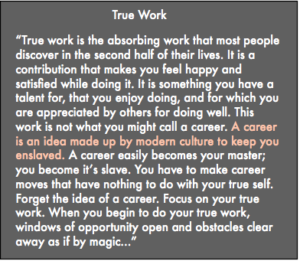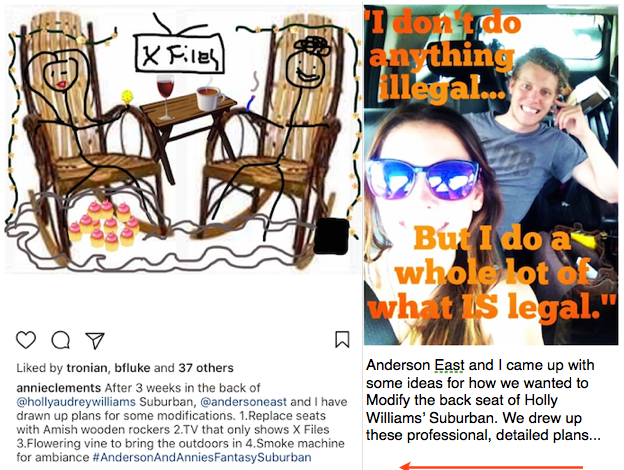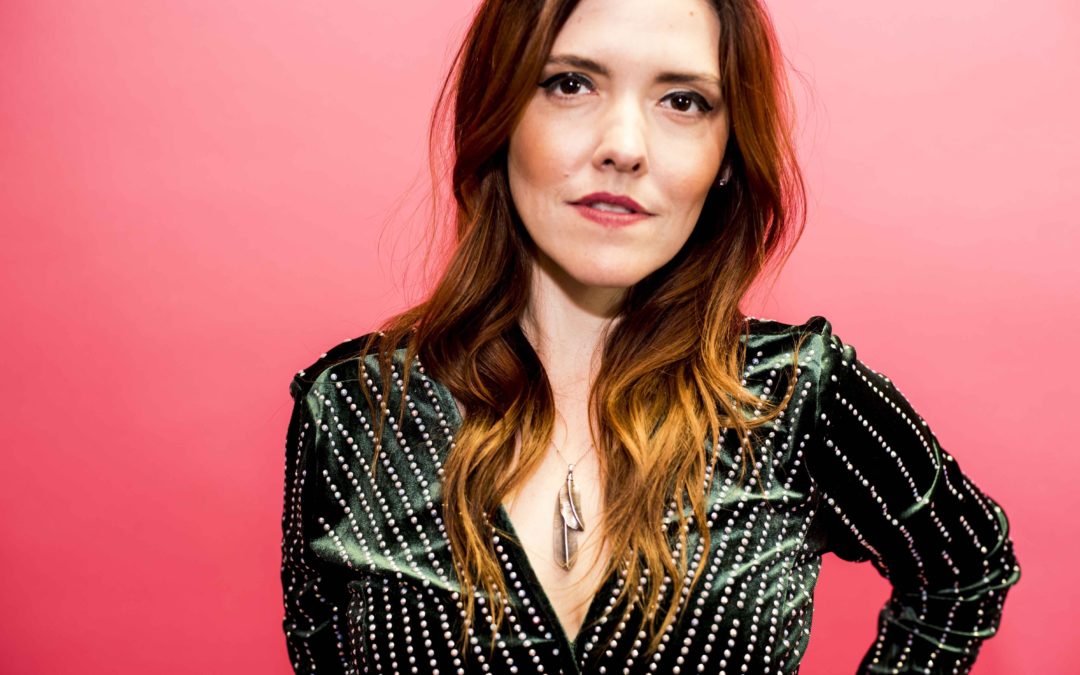In the ongoing series where I take your questions, this next round comes from Kenny Weiss…
I’ve been playing guitar for 15 years and professionally for 10. As far as goals, I don’t need/want to be the next John Mayer, but I want to play with that guy/gal. I have a mentality of saying yes and figuring it out later. Music is so important to me. I find myself sitting and saying, “This is what I was meant to be doing, how do I do it more?”
How did you get picked up by a nationally touring artist? Do you ever audition for gigs or is it mostly networking? What was the audition like? What’s it like to be playing on huge stages with big artists? Do you prefer big or small venues? Does it feel natural to be up there playing their music?
When I toured, I was stuck in a Suburban for hours on end, what’s it like to be on a tour bus? How do you prefer to travel and where do you prefer to stay (bus, hotel, etc.)?
— — — — — — — — — —
This is the line of questioning I get the most – The “How did you get to where you are and how can I get there too?” question. I can only answer the first half of this question as the answers I have to give are truly only specific to MY life experience. There’s no standard blueprint for how to do any of this. Everyone who has a job in music has a different path to how they got there.
The crux of the question is: How do I get picked up by a nationally touring artist?
The more important question for anyone, no matter what you’re trying to do is: This is what I was meant to be doing, how do I do it more?
And then the subsequent questions about the lifestyle after you get to the Big More – being on a bus, being on a big stage, etc… Those successes (however you define “success”) come AFTER you find what you were meant to be doing. So let’s focus on that for now. Because I have to hold firmly to the belief that if you’re doing what you’re meant to be doing, the rest will get figured out. That’s my story anyway. Allow me to explain.
But first allow me to disclaim: Again, I’m writing this purely for the sake of putting all of my thoughts into one place so when folks inevitably ask me this question again, I can direct them here. This is not a “How To Make It In The Music Business” blog, this is just me telling you my story. And hopefully it helps. I’ve done lots of interviews and podcasts with some of the more practical nuts and bolts of being a working musician. Feel free to check ‘em out, I’ll put links to them at the end here. But I’m taking the liberty of writing this blog about something more overarching than all of that.
I want to share a quote from maybe the most important book I’ve ever read. It’s called Transforming Your Dragons: How to Turn Fear Patterns Into Personal Power – by Jose’ Stevens. Check this book out, homies.

Heavy stuff. I’m not saying anyone should sit around and play video games all day. You have to make a living. You have to be practical. But hopefully you can enjoy your life in the process of making said living.
I’ve been called a work-a-holic. I get comments all the time on my posts like “When do you take a break? Your life looks exhausting!” But it’s not. Because I’m a life-a-holic. I’m addicted to living life and my life feels fullest right now (and for the past 30 years or so) when I’m playing songs I love with people I love. None of this has ever felt like work to me and the minute it does I know that something is amiss. I received the blessing of this particular music life-lust from growing up with my guitar playing dad, who over dinner the other night made the comment in regards to musicians who seem to be punching a clock verses people who play for the joy of it: “C’mon people, you’re not just making a gig… You’re making a life!”
Anytime I’m playing songs I love with people I love, whether I’m on a huge stage or in someone’s living room, I’m doing my true work. I make sure to be financially responsible so that I can continuing doing this work that I love. Not the other way around. I believe that once you find your true work, things open up for you. But this doesn’t happen overnight for anyone. And my life is waaaaaaaay different than I expected or initially intended for it to be.
But back to your life, Kenny. You say you want to be a sideman. Like me. First of all, it sure sounds like you’re on the right track by trying out lot’s of different styles and saying yes to every opportunity. That’s a great way to find your true work and also let people witness you Truly Working. One of the best gifts I took away from my time at Berklee was to try out as many different styles and play with as many different people as possible. I had a very different idea when I first arrived at Berklee about where I saw myself after graduation than where I actually ended up. One huge thing I did (and continue to do) that I would highly recommend to you is to pay attention to feedback.
First of all, I had ZERO interest in country music. I had an idea in my head that I was going to be in an all-girl funk band and be magically plucked from the ether by a mysterious figure at a mysterious record label in the sky (having no idea how any of that actually worked) and thusly I set about the business of trying to write funky songs, round up girls, forge a visual identity for myself (lot’s of Asian dresses and wigs) etc… I got a little band going and it was pretty good. But what I started to notice was that every time I performed in an ensemble, at a local show, backing up someone else or even playing my own show, someone inevitably approached me afterwards and asked me to play with them. People wanted me in their band. They wanted a bass player who played solid, pocket bass and could sing. That was the most consistent positive feedback I was receiving. So I went with it.
*Let me interject here that I’m not saying to just focus on what others think of you and give up your passion. What I AM saying is don’t beat your head against the wall trying to put a square peg in a round hole. As my hero Dave Ramsey often says, “I’m a short, un-athletic old man. I’m not going to suddenly become the starting forward for the L.A. Lakers.” When you are in your power place, it shows. So keep trying things and if they feel good keep doing them and pay attention when someone tells you your inner power is showing.*
I played with as many people as possible. And I (generally) loved it. Kenny, you also asked “Does it feel natural to be up there playing their music?” The answer for me is a resounding YES. I’m a bass player. I don’t want to be out there alone. I want to be in a band. I want to be with people. And I hope that that’s obvious when I’m on stage, when I’m on tour, when I’m at home with my friends and family. I want to be immersed and get lost and found and not even notice the passing of time. That’s when I know I’m doing my true work, no matter what the task. I don’t want it to end. So I ask you: Where are you getting positive feedback, Kenny? When does work not feel like work? What aspects of your playing are people responding to? What aspects of YOU do people remark upon and treasure? What aspects are challenging for others? For yourself? Work on these things and I’ll bet a lot of other questions will be answered for you.
Here are the honest answers to a few of those questions for me. After touring with friends towards the end of college and being exposed to the harsh realities of being a bandleader, I had to ask myself: Did I want to be responsible for booking all the gigs, getting paid, marketing the gigs, losing money if no one showed up, losing money even if a lot of people showed up, etc…? My honest answer was no. I wanted someone else to make those decisions. I wanted to be free to play, to be a musician who in an unpredictable line of work was able to create as stable a life for herself as possible. And at that time, that meant letting go of the idea of being a front person.
Once I made that decision, everything else evolved naturally. I made a hard life decision and walked away from my band and the city of Boston and took a gig back home with a local New Orleans artist named Theresa Andersson who, being a friend of my musician father and therefore knowing I had just graduated (and was likely looking for work and would probably work for cheap) asked me to join her band. She was signed to a local label with a budget and it was good music and steady work. Check, check, and check. Playing with her led to my getting spotted by and thusly joining the Sons of William which led to meeting my friend and long time bassist for John Mayer Dave LaBruyere (to whom I posed your same question when I too was 24 years old just like you are Kenny, and to which he responded very wisely “I’m not worried about you. You just keep doing you.”) I kept playing. I turned 25. Dave put my name in the hat for the Sugarland audition when they asked him (as one of the baddest bassists in the business) for recommendations. I drove to Nashville, slept on a blowup mattress on Dave’s floor, didn’t eat solid food because I was too nervous, had learned the three audition songs inside and out and the harmonies as well, walked into a rehearsal space and was greeted with warm smiles and hugs, saw Star Wars decals on instruments and cases, played one song and it felt good. Then we played the other two and they also felt good. I was asked to come back and play the next day. I was awarded that gig and the rest is history.
But it’s not. The rest is that I rode that wave for 7 years, met my husband in that band, and then Sugarland ended and we both had to figure out what was next. I taught lessons and played with people just for fun/beer and chicken wings. Thad shifted into an entirely new profession in endurance performance coaching. But he is still doing the same True Work that he did as a musician and producer – which for him is seeing the larger picture of where a song or an artist and now where an athlete or even a brand wants to go and inspires them to get there. Within a few months, thanks to another recommendation by a friend and the subsequently relentless badgering of the artist on my part, I started working with Holly Williams. And a few months after that, Amos Lee saw my show with Holly and approached me for his band. There’s another saying I’m fond of, which is “Work begets work.” I think I can alter that to “True work begets true work.” It never mattered to me what the work was as long as it was true. For me “true” also encompasses true friendship, respect, kindness and a true investment in the people I’m playing with. When those things are there the music is infinitely better. For me, the music’s not really worth making if those things aren’t there. That stuff translates on a stage. And don’t forget that even when you think people aren’t watching; they are. So stay true.
Maybe you’re meant to help people. Maybe you’re meant to teach people. Maybe you’re meant to light up a stage and inspire people in that way. I believe I’m meant to be a part of a whole that brings a song to life, lifts it up, and sends it straight to someone’s heart. That’s my truest work. You can change someone’s life by being a shining light, no matter what you’re doing. Many people have certainly changed mine. Kenny, if you’re shining from the inside out, you will be seen. Maybe not in the way you originally wanted or envisioned. You will attract people, you will attract work, you will attract LIFE. And please don’t interpret this as me saying that I read “The Secret” or something (I tried envisioning myself being thin whilst still eating whatever I wanted; it didn’t work) or that I’m all bright and shiny all the time and that it’s just sooooo easy. I’m not and it isn’t. I don’t see my husband or my family for much of the year. Seasons change, artists shift in popularity, sometimes there’s lots of work and sometimes there isn’t. When there isn’t, I make work for myself even if it’s unpaid. And that’s usually the way back to more paying work. But ultimately when I’m playing, and it’s true, I can’t help but wear a big, shining smile. And people seem to dig that.
Oh, and as to your question “When I toured, I was stuck in a Suburban for hours on end, what’s it like to be on a tour bus?” Truth bomb: You are STUCK in a bus. You can go wherever the hell you want in a Suburban. I had some of the most fun I’ve EVER had on tour traveling with Holly Williams and Anderson East in her suburban. Talk about never wanting something to end. You want Chick-Fil-A? Pull over! You wanna check out that flea market? Pull over! Oh look! Puppies for sale! Pull over! We pulled up to Holly’s house in that Suburban after spending a month opening for Jason Isbell and no one wanted to get out of that car. We didn’t want the ride to be over. It was true blue.
There is no blueprint. There is no “If I do this, then this happens.” Everyone’s journey is different. But if you’re operating from the heart I think it makes things clearer.
Hope that helps, Kenny…
Links:
Transforming Your Dragons: How to turn fear patterns into personal power
Podcasts I’ve done on working and whatnot:
ICMP Online – Life as a Touring Musician http://icmponline.com/podcast/annie-clements/
Worst Moment In Music
Annie talks about flying to Los Angeles for an audition and how a bad experience led her to to a new and very successful path working with Sugarland.
Musical Lightbulb Moment
How dropping a ring on the floor in the middle of her show led Annie to realize what her role as a bass player was…
The Middle Class Musician. https://www.iheart.com/show/263-The-Middle-Class-Mu/?episode_id=27738039
Berklee Online interviews. Tips on marketing and further education. https://online.berklee.edu/takenote/making-music-career-advice-annie-clements/
And some pics from the Suburban aka the time of my life:
:

